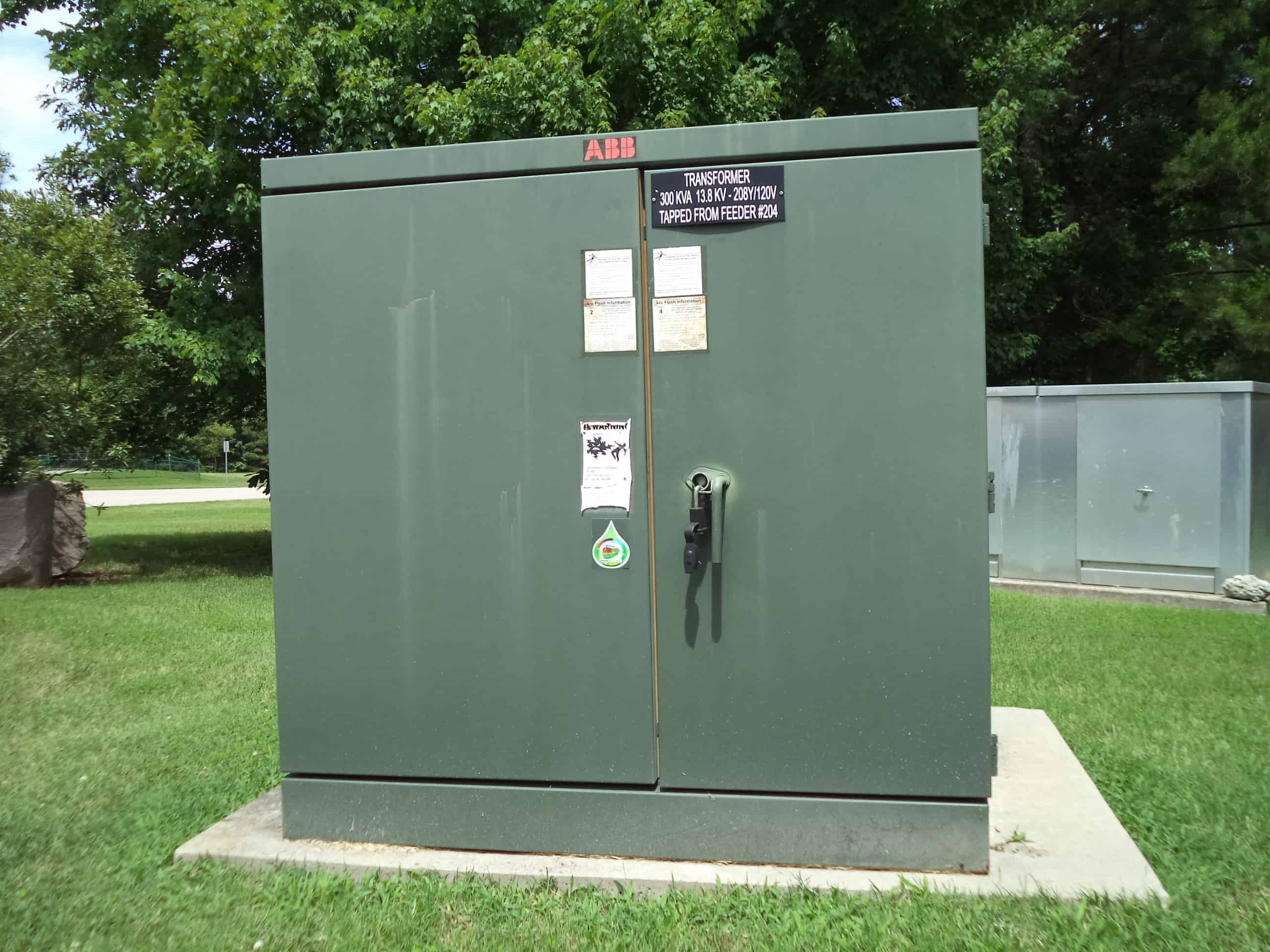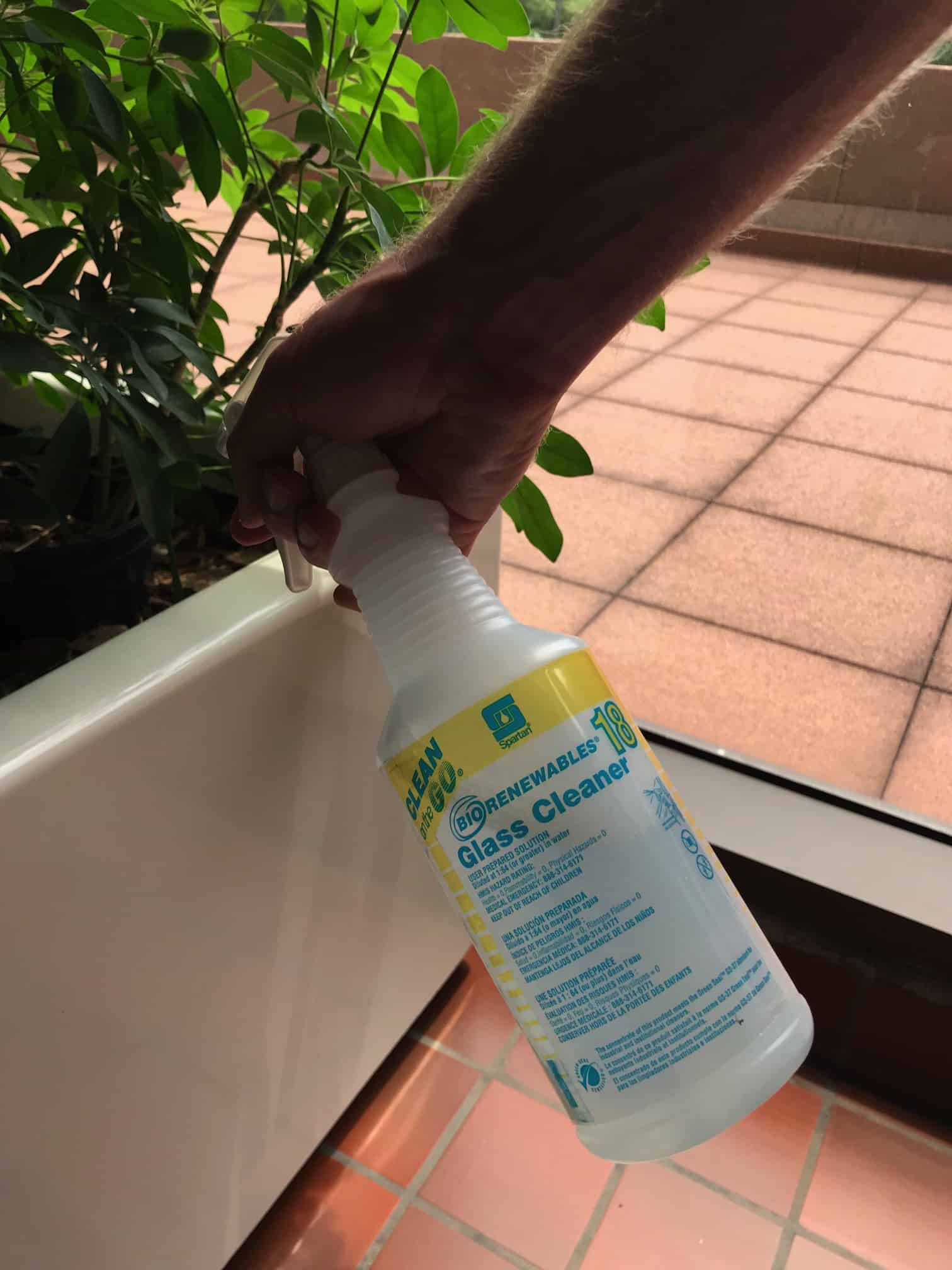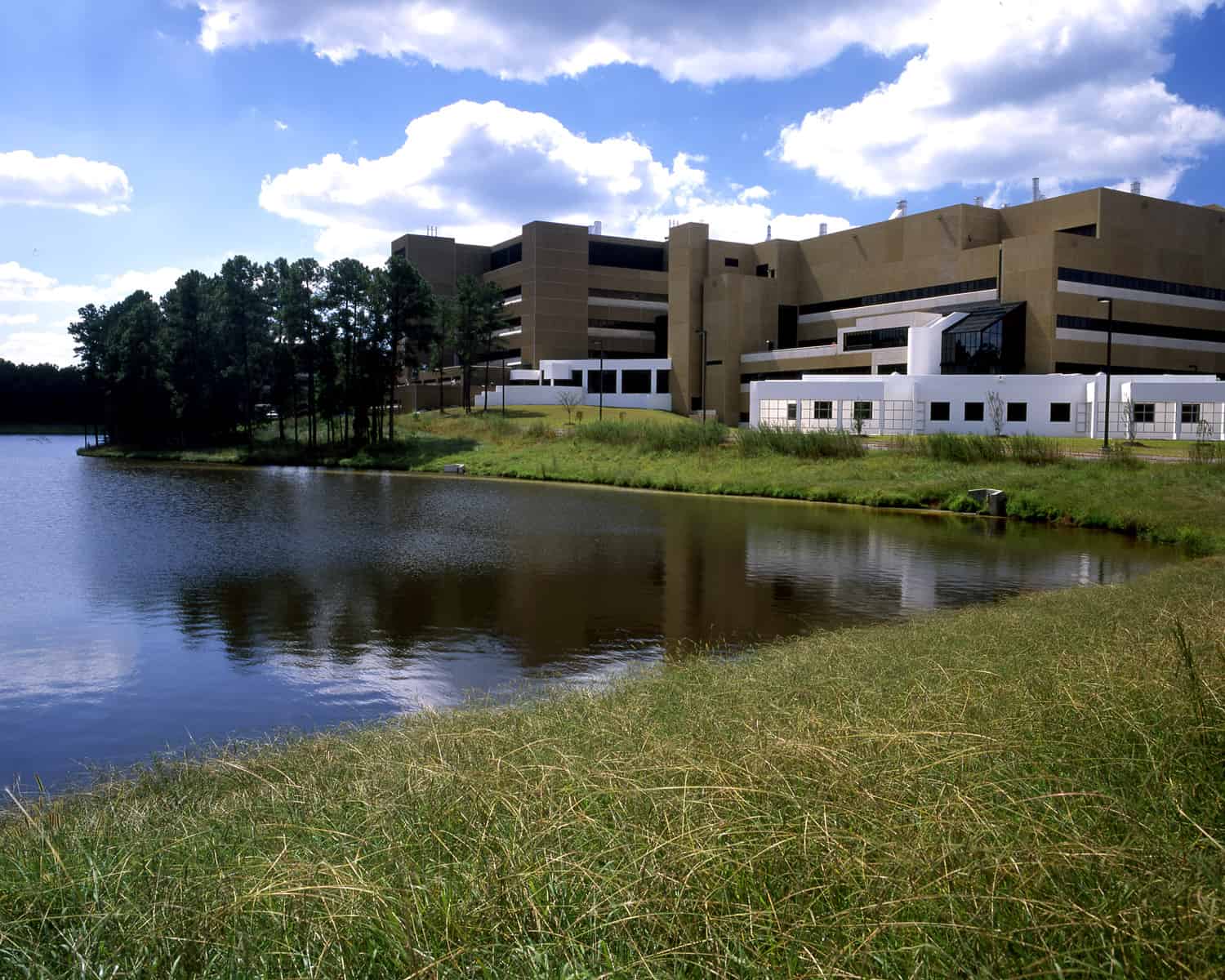As a government agency focused on health and the environment, it’s no surprise that the National Institute of Environmental Health Sciences (NIEHS) is committed to environmental stewardship and recognizes the role soy-biobased products can play in achieving sustainability goals.
More than a decade ago, NIEHS selected a biobased transformer fluid to avoid contamination of soil and groundwater in the event of a petroleum-based transformer fluid spill. Though they have never experienced a spill, the agency is confident that the biobased alternative is the best choice and continues to use it in the two transformers on its North Carolina campus.
“The overarching benefit is that biobased products are derived from renewable resources,” said Paul Johnson, Manager Environmental Protection & Stewardship Programs at NIEHS.

NIEHS selected a biobased transformer fluid to avoid contamination of soil and groundwater in the event of a petroleum-based transformer fluid spill. Photo credit: NIEHS
Envirotemp® FR3® fluid, manufactured by Cargill, is a natural ester derived from renewable vegetable oils – providing improved fire safety, enhanced transformer load flexibility, and environmental benefits that are superior to petroleum-derived mineral oil traditionally used in electrical transformers. Available on the market for more than 20 years, natural esters are used in both power and distribution transformers for indoor and outdoor applications. FR3 known as a K-class with a fire point nearly 180C higher than mineral oil and is a readily biodegradable fluid that helps improve fire safety and the environmental footprint.
FR3 is recognized as a qualified product in the U.S. Department of Agriculture’s (USDA) BioPreferred program. Federal law and regulations direct federal agencies to purchase biobased products in categories identified by USDA. FR3 also meets the baseline requirement, as well as the high performance criteria, in the General Services Administration’s (GSA) facilities standards for public buildings. In 2013, the U.S. Environmental Protection Agency (EPA) honored FR3 with the Presidential Green Chemistry Award.
In addition to the transformer fluid, NIEHS made the switch to biodiesel fuel in 2005 in order to meet Energy Policy Act requirements that dual-fueled vehicles operate on alternative fuel when available. The agency powers six box trucks with B20. For every gallon produced and consumed, biodiesel reduces particulate matter by 47 percent, hydrocarbon emissions by 67 percent and lifecycle greenhouse gases by 80 percent on average.

NIEHS is using a soy-based glass cleaner as part of their custodial contract. Photo credit: NIEHS
The NIEHS is also using Biorenewables Glass Cleaner, manufactured by Spartan Chemical, as part of their custodial contract and they are evaluating several other soy-biobased products for future use.
“Our overall experience with these products has been good with no complaints from the end users,” said Johnson. “We also notice less diesel odor emitted by the box trucks running on biodiesel.”
He went on to explain that, “Use of these products helps NIEHS meet Federal Acquisition Regulation (FAR) requirements, which were developed to give preference to biobased products in categories identified by the USDA BioPreferred Program.”
When the NIEHS environmental team met with United Soybean Board (USB) representatives at an agency Earth Day event in 2019, they learned about additional soy-biobased products that could be used for operations, maintenance and construction on the NIEHS campus.
“The visit from USB consultants really opened our eyes to additional biobased alternatives that are out there,” said Bill Steinmetz, Environmental Compliance Specialist at NIEHS. “We will continue to look for opportunities to use biobased products in any new construction and will work with our acquisitions team to incorporate the use of additional products going forward.”
“NIEHS is in the learning stage and plans to continue promoting biobased product awareness and purchasing guidelines,” Johnson added. “We plan to determine suitability for using biobased materials during construction projects and evaluate potential for replacing commonly used consumable shop, custodial, and landscaping products.”
Part of the National Institutes of Health (NIH), the 385 acre NIEHS campus is based in Durham, N.C. and includes eleven buildings staffed by roughly 1,100 employees. Its mission is “to discover how the environment affects people in order to promote healthier lives.”

Part of the National Institutes of Health (NIH), the 385 acre NIEHS campus is based in Durham, N.C. and includes eleven buildings staffed by roughly 1,100 employees. Photo credit: NIEHS
For more information on Envirotemp FR3, click here.
For more information on the GSA public building requirements, see the latest version of the Facilities Standards for the Public Buildings Service PBS-P100 (known as the P100), Chapter 7: Electrical Engineering, p. 165 and p. 180
For more information on biodiesel, click here.
For more information on Biorenewables Glass Cleaner, click here.

